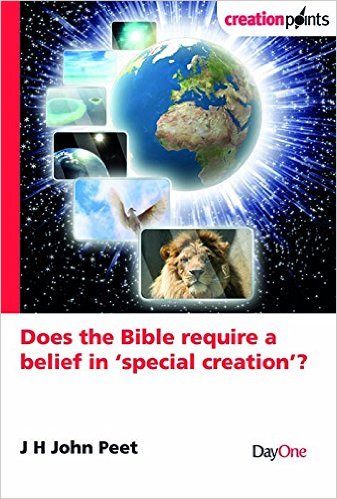Description
J H JOHN PEET
To many, even evangelicals, belief in the historicity of the early chapters of Genesis is an anachronism or, at best, an optional extra In this book, the author examines the nature of these chapters and explores their impact on a range of fundamental doctrines (as developed throughout the Scriptures), including God, the Bible, mankind and our salvation The contrast between the creationist and evolutionist approached is highlighted Special studies include the issue of the days of creation and the history of mankind.
John lives in Surrey with his wife, Ruth. They are blessed with four children and twelve grandchildren. John has been a Christian since he was 13 years old and is grateful for a godly heritage. He studied Chemistry at university and did research in it. His career has been in education, teaching at secondary and higher education levels. He is an active member of his church, having served as a youth leader and an elder, with particular responsibility for missionary care. His Christian ministry has taken him around the world. Particular interests have included creation, chronology and archaeology. He has written several books and papers on these and biblical studies
The author himself asks the obvious question: ‘Why another book on this subject?’ (pg 7). Dr Peet’s answer is that his purpose is specifically to look at the theological issues. He writes at a popular, not academic, level and, in general, does not consider scientific or design arguments, or other issues such as those of an educational or environmental nature. He neither proposes nor discusses any specific creation model. The only significant departure from this theological focus is an appendix on the history of mankind. Dr Peet writes as an evangelical in response to those (especially Dr Denis Alexander in Creation or evolution,2008) who have rejected the understanding of the Genesis account as a record of special creation and have reinterpreted it as supporting, or compativle with, some form of universal evolution. Dr Peet argues that rejecting the historicity of the early chapters of Genesis in this way is extremely dangerous. He demonstrates that fundamental Christian doctrines are founded in those early chapters and that rejecting their historicity undermines our confidence in the truth of those foundational doctrines. In successive chapters, he considers the attributes and actions of God; Scripture as God’s revelation; the nature of man as the image of God; the Fall (into sin) and its consequence in broken relationships and God’s judgements; God’s grace and salvation through Christ; and the world’s purpose and its fulfilment in a new heaven and earth. He also suggest that features of modern society, such as the redefinition of marrriage and loss of respect for a weekly day of rest, are wider consequences of the rejection of the historicity of Genesis. in line with the specific focus of the book, he does not consider these aspects in any detail. When supplemented by books on the scientific case for special creation (such as Paul Garner’s The New Creationism, 2009), Dr Peet’s pwerful presentation of the biblical arguments against the idea of God creating through evolution provides an invaluable service to Christians wrestling with this issue today. Evangelical Times – July 2014 – Arthur Jones Manchester (4/5 star)



Reviews
There are no reviews yet.